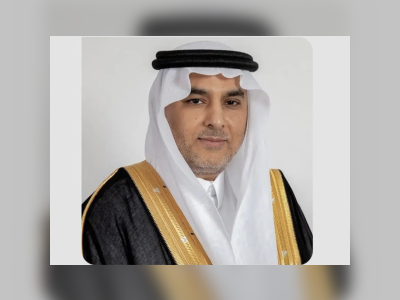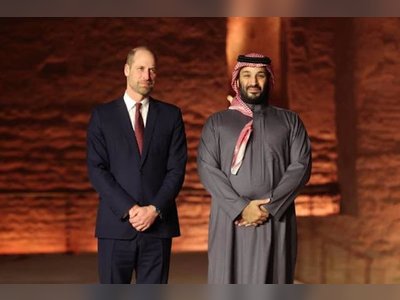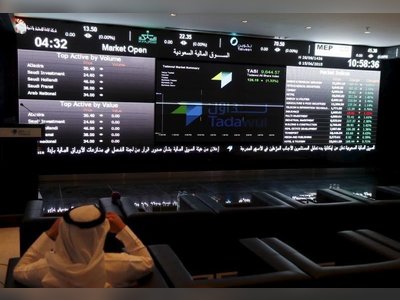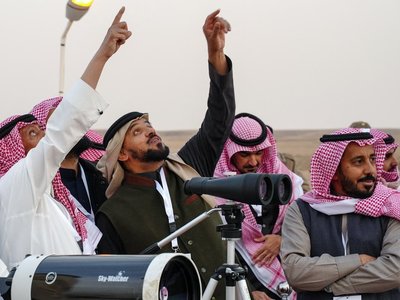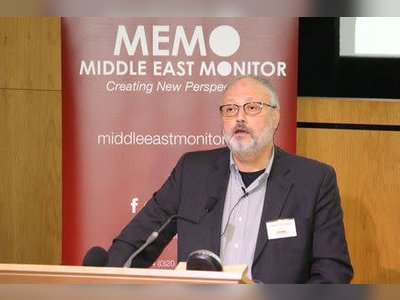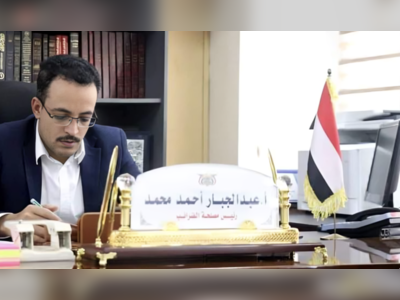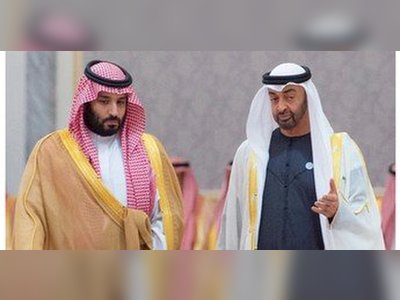
Ahead of Biden’s visit, Arab countries, Israel agree to deepen cooperation
Monday’s meeting will “serve as a milestone ahead of the US president’s expected visit to the Middle East.”
Diplomats from the United States, Israel and four Arab countries convened in Bahrain Monday, three months after they vowed to boost cooperation at a landmark meeting in Israel.
“We’re trying to build a new regional framework… and tangible initiatives that can put flesh on the bones of the Negev forum,” said Yael Lempert, the Principal Deputy Assistant Secretary of State for Near Eastern Affairs.
Working groups will investigate cooperation in six areas, including security, clean energy and food and water security.
A joint statement also expressed the group’s support for a negotiated settlement to the Palestinian-Israeli conflict.
“It’s a very holistic approach, towards trying to advance this goal of building a new architecture that really has meaningful results,” Lempert told reporters.
The talks in the Bahraini capital Manama brought together foreign ministry officials from the United Arab Emirates, Bahrain and Morocco, which all normalised ties with the Jewish state in 2020, and from Egypt, which made peace with Israel in 1979.
In March, they met for the first time on Israeli soil in the Sde Boker kibbutz in the Negev desert, with US Secretary of State Antony Blinken joining his counterparts.
The UAE and Bahrain forged ties with Israel under the Abraham Accords, brokered by former US president Donald Trump. Morocco then re-established relations with Israel under a separate Trump-brokered agreement.
The Abraham Accords infuriated the Palestinians, who argued that they marked a betrayal of a decades-old Arab consensus to isolate Israel until it agrees to the establishment of a Palestinian state, with its capital in east Jerusalem.
Washington has said it wanted the meeting to be annual and to include the Palestinian Authority and Jordan, another Arab nation that recognises Israel, but which has seen rising criticism over the status of Jerusalem.
Blinken has voiced strong support for the Abraham Accords but cautioned at the Negev meeting that they cannot replace Israeli-Palestinian peace-building.
The meetings aim to deepen cooperation on areas including water, tourism, health, energy, food security and on regional security.
Israel has also found common cause with Gulf Arab states in their tense relationship with Iran’s Shia clerical state.
Monday’s “meeting will also serve as a milestone ahead of the US president’s expected visit to the Middle East,” the Israeli foreign ministry said in a statement.
President Joe Biden will travel to Israel, the Israeli-occupied West Bank and Saudi Arabia from July 13 to 16, his first trip to the Middle East since taking office.
Once there, he will attend a Gulf Cooperation Council summit with leaders from Saudi Arabia, the UAE, Qatar, Bahrain, Kuwait and Oman, joined by the leaders of Egypt, Iraq and Jordan, a US official said.
“We’re trying to build a new regional framework… and tangible initiatives that can put flesh on the bones of the Negev forum,” said Yael Lempert, the Principal Deputy Assistant Secretary of State for Near Eastern Affairs.
Working groups will investigate cooperation in six areas, including security, clean energy and food and water security.
A joint statement also expressed the group’s support for a negotiated settlement to the Palestinian-Israeli conflict.
“It’s a very holistic approach, towards trying to advance this goal of building a new architecture that really has meaningful results,” Lempert told reporters.
The talks in the Bahraini capital Manama brought together foreign ministry officials from the United Arab Emirates, Bahrain and Morocco, which all normalised ties with the Jewish state in 2020, and from Egypt, which made peace with Israel in 1979.
In March, they met for the first time on Israeli soil in the Sde Boker kibbutz in the Negev desert, with US Secretary of State Antony Blinken joining his counterparts.
The UAE and Bahrain forged ties with Israel under the Abraham Accords, brokered by former US president Donald Trump. Morocco then re-established relations with Israel under a separate Trump-brokered agreement.
The Abraham Accords infuriated the Palestinians, who argued that they marked a betrayal of a decades-old Arab consensus to isolate Israel until it agrees to the establishment of a Palestinian state, with its capital in east Jerusalem.
Washington has said it wanted the meeting to be annual and to include the Palestinian Authority and Jordan, another Arab nation that recognises Israel, but which has seen rising criticism over the status of Jerusalem.
Blinken has voiced strong support for the Abraham Accords but cautioned at the Negev meeting that they cannot replace Israeli-Palestinian peace-building.
The meetings aim to deepen cooperation on areas including water, tourism, health, energy, food security and on regional security.
Israel has also found common cause with Gulf Arab states in their tense relationship with Iran’s Shia clerical state.
Monday’s “meeting will also serve as a milestone ahead of the US president’s expected visit to the Middle East,” the Israeli foreign ministry said in a statement.
President Joe Biden will travel to Israel, the Israeli-occupied West Bank and Saudi Arabia from July 13 to 16, his first trip to the Middle East since taking office.
Once there, he will attend a Gulf Cooperation Council summit with leaders from Saudi Arabia, the UAE, Qatar, Bahrain, Kuwait and Oman, joined by the leaders of Egypt, Iraq and Jordan, a US official said.
